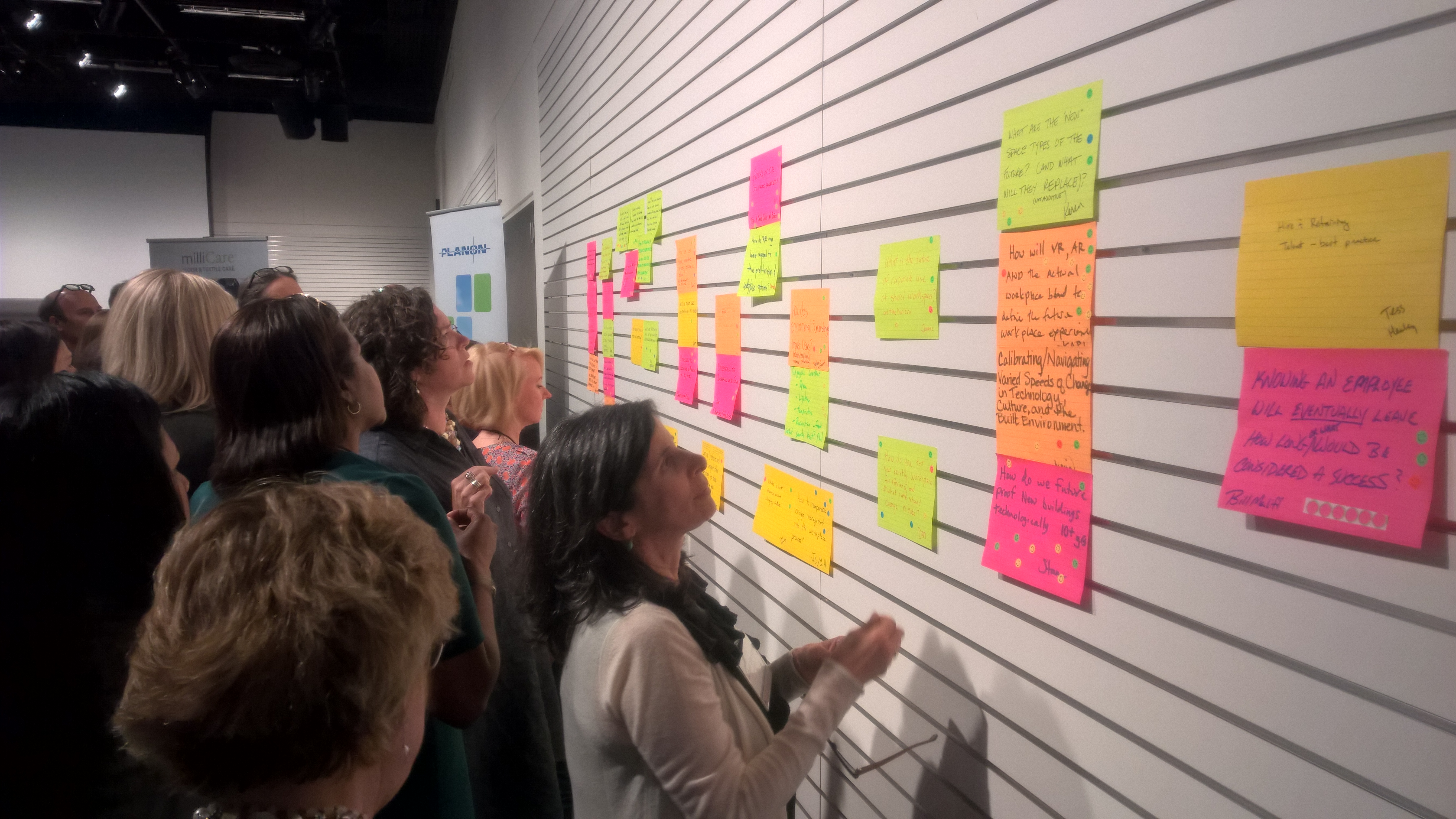OpenSpace
An unconference, also an Open Space conference, is a participant-driven meeting.
The agenda is created by the attendees at the beginning of the meeting. Anyone who wants to initiate a discussion on a substantive topic can ask for time and space. Unconferences typically feature open discussions rather than having a single speaker at the front of the room giving a talk, although any format is permitted. This form of conference is particularly useful when the attendees generally have a high level of expertise or knowledge in the field the conference convenes to discuss. The aim of an Open Space meeting is for every issue of any importance, with someone willing to take some ownership for it, gets announced to the community and those interested can support and collaborate to bring the issue to a conclusion. As work progresses, notes and pictures are posted so the wider community is also kept abreast of developments so they can comment or join in as appropriate.
I recently facilitated a conference on the Nike campus for WE and crec; communiteis that are part of IFMA who had come together under the banner of Designing for the Experience. They were very nervous at not having an agenda for the second day of the conference but I knew OpenSpace would work well with this great crowd of seventy designers, architects and workplace strategists and consultants.

Not only did we create a dynamic agenda but the levels of contribution and passion exceeded everyone's expectations. Comments from participants during the closing session included: OpenSpace exercise is really engaging, eye opening, best conference I have been to in a long time, learned more at this conference in one day than a whole year of ..., like the un-conference approach.
So if you are thinking of using OpenSpace, here are some tips for the moderator. More on the OpenSpaceWorld.org website. Key elements include:
- The Four Principles:
- - Whoever comes is [sic] the right people
- - Whatever happens is the only thing that could happen
- - Whenever it starts is the right time
- - When it's over, it's over
- The Law of Two Feet:
- - If at any time you find yourself in any situation where you are neither learning nor contributing, use your two feet and move to some place more to your liking
- The Three Phases:
- - Proposing topics
- - Participant Voting
- - Agenda construction and publishing
GO DIGITAL at OpenSpace
At the conference, I also explored the concept of GO DIGITAL; using apps and tools to keep everyone at the conference up to date on what was happening in the other rooms. At past conferences, I had used OneNote (a shared note taking environment) but I wanted to go further than just note taking. We chose #slack and spent time during the first day making sure people were familiar and pictures and comments were being shared. Each workshop had several attendees with an assigned role to ensure an outcome was reached. These included:

- Proposer
- - the person who proposed the topic and who feels strongly enough about solving an issue, who outlines the topic and gives a short introduction at the workshop (scope, outcome)
- Moderator
- - supports the proposer, someone knowledgeable on the subject who has enough context and skills to keep the workshop on track towards an outcome (an idea, a solution, a proposal)
- Connector
- - real-time digital note taking, photo’s, tweets etc. shared during and after the meeting so those in the room AND those not in the room can follow progress.
That left everyone else able to contribute to the discussion and collaborate on the outcome, remembering to be in the moment and respect the discussion. Or leave according to the law of two feet above. If you want to see how it went, take a look at this short video from the event:
Many, many thanks to all the conference attendees.